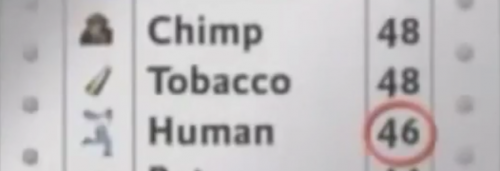I’m down on the organized skeptical community, because I think they practice skepticism selectively. But here’s a good example of healthy skepticism on nutrition science, prompted by this ‘documentary’, What the Health. I like that the position is put right up front.
As a vegan health professional, I am sometimes mortified to be associated with the junk science that permeates our community. And as an animal rights activist, I’m disheartened by advocacy efforts that can make us look scientifically illiterate, dishonest, and occasionally like a cult of conspiracy theorists.
I’m not a vegan, but I sympathize with the movement; I’m not an animal rights activist, because I agree that there is way too much scientific illiteracy in that movement…but I do support improving care and minimizing suffering in animals. I can never support the kind of dishonesty rampant in these quack nutrition stories, like those credulously promoted in What the Health.
The exaggerated and misleading statements about animal foods and health are meant to build the case that you must be vegan if you want to be healthy. We hear, for example, that there is no evidence that consuming animal foods in moderation can turn heart disease around. Yes, there is. There is at least as much evidence that plant-based (but not vegan) diets can reverse heart disease as there is evidence indicating vegan diets can reverse heart disease.
And finally, there are the miraculous healings. The film tells us that a plant-based diet can treat lupus, multiple sclerosis and osteoporosis. (I’d love to see actual evidence for any of this.) Then we’re shown real-life examples of astonishing recoveries from illness. One woman has been diagnosed with bilateral osteoarthritis and is scheduled for two hip replacements because, as she describes it, bone is rubbing on bone. This means that the cartilage that cushions the hip joints has worn away. You can’t just grow back a bunch of cartilage in two weeks by changing your diet. Nor is there evidence that a healthy vegan diet will reverse thyroid cancer as is claimed in the film. And I hope that the woman who stopped taking antidepressants in just two weeks did so under strict medical supervision. That is not enough time to taper off of these drugs (which kind of makes me doubt her story). And to imply that people can abruptly stop taking their antidepressants when they go vegan is irresponsible and dangerous.
Kip himself says that after he changed his diet, “within a few days I could feel my blood running through my veins with a new vitality.” It immediately brought to mind Lierre Keith, ex-vegan and author of The Vegetarian Myth. She says this when she eats a bite of tuna fish after many years of veganism: “I could feel every cell in my body—literally every cell—pulsing. And finally, finally being fed.”
I’ve personally made changes in my diet to reduce animal protein, because the arguments make sense: it’s generally good to exercise moderation in your diet. I’ve been exercising more. But I don’t believe in magical rejuvenations or that I can feel my veins or cells or that eating more carrots will prevent cancer.
I think I’ll skip the movie. But I’m willing to listen to what Virginia Messina has to say about vegan diets.




